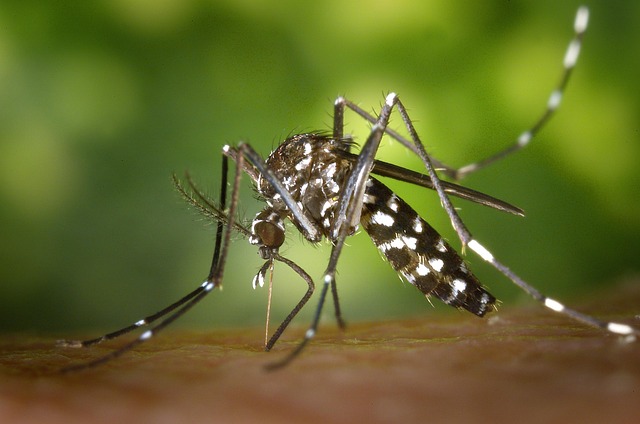Mosquito Repellents: Your Guide to a Bite-Free Summer
As the warm summer months approach, the buzzing of mosquitoes becomes an all-too-familiar sound. These pesky insects not only disrupt our outdoor activities but can also pose health risks. Fortunately, mosquito repellents offer a reliable solution to keep these blood-sucking pests at bay. In this comprehensive guide, we'll explore everything you need to know about mosquito repellents, from their types and effectiveness to natural alternatives and skin health considerations.

What are mosquito repellents and how do they work?
Mosquito repellents are substances designed to deter mosquitoes from landing on and biting human skin. They work by interfering with the mosquito’s ability to detect human scent, effectively making us “invisible” to these insects. Most repellents contain active ingredients that create a vapor barrier on the skin’s surface, masking the odors that attract mosquitoes. This barrier confuses the mosquito’s sensory receptors, making it difficult for them to locate their potential prey.
Which types of mosquito repellents are most effective?
When it comes to mosquito repellents, not all products are created equal. The most effective repellents typically contain one of the following active ingredients:
-
DEET (N,N-diethyl-meta-toluamide): Considered the gold standard in mosquito repellents, DEET has been widely used for decades and provides long-lasting protection.
-
Picaridin: A newer alternative to DEET, picaridin is equally effective and has the added benefit of being odorless and non-greasy.
-
Oil of Lemon Eucalyptus (OLE): This plant-based repellent offers protection comparable to low concentrations of DEET and is a popular natural option.
-
IR3535: Commonly used in Europe, this synthetic repellent provides effective protection against mosquitoes and other biting insects.
-
Permethrin: While not applied directly to the skin, permethrin-treated clothing and gear offer excellent protection against mosquitoes.
Are there natural alternatives to chemical mosquito repellents?
For those seeking natural alternatives to chemical repellents, several options can provide varying degrees of protection:
-
Essential oils: Citronella, eucalyptus, peppermint, and lemongrass oils have mosquito-repelling properties. However, their effectiveness is generally shorter-lived compared to synthetic repellents.
-
Neem oil: Derived from the neem tree, this natural oil has been used for centuries to repel insects.
-
Citronella candles and torches: While not as effective as topical repellents, these can help create a mosquito-free zone in outdoor areas.
-
Garlic and vitamin B1: Some people swear by consuming garlic or taking vitamin B1 supplements to repel mosquitoes, although scientific evidence supporting these methods is limited.
It’s important to note that while natural alternatives may appeal to those concerned about chemical exposure, they often require more frequent reapplication and may not provide the same level of protection as synthetic repellents.
How do mosquito repellents affect skin health?
When using mosquito repellents, it’s crucial to consider their potential impact on skin health. Most EPA-registered repellents are safe for use on skin when applied as directed. However, some individuals may experience skin irritation or allergic reactions. To minimize potential skin issues:
-
Apply repellents to exposed skin only, avoiding cuts, wounds, or irritated areas.
-
Don’t apply repellents under clothing.
-
Avoid overapplication and wash off the repellent with soap and water when no longer needed.
-
For children, apply the repellent to your hands first, then gently spread it on the child’s exposed skin, avoiding their hands, eyes, and mouth.
-
If you experience any skin irritation, discontinue use and wash the affected area thoroughly.
What are some additional mosquito prevention strategies?
While repellents are effective, combining them with other prevention strategies can provide comprehensive protection:
-
Eliminate standing water around your property to reduce mosquito breeding sites.
-
Use mosquito nets when sleeping outdoors or in areas without proper window screens.
-
Wear long-sleeved shirts and pants in light colors, as mosquitoes are attracted to dark colors.
-
Avoid being outdoors during peak mosquito hours, typically dawn and dusk.
-
Use fans in outdoor areas, as mosquitoes are weak flyers and struggle in moving air.
How do different mosquito repellent products compare?
When choosing a mosquito repellent, it’s helpful to compare different products based on their active ingredients, effectiveness, and duration of protection. Here’s a comparison of some popular mosquito repellent options:
| Product Name | Active Ingredient | Protection Duration | Application Method | Estimated Cost |
|---|---|---|---|---|
| OFF! Deep Woods | 25% DEET | Up to 8 hours | Spray | $7-$10 |
| Sawyer Premium | 20% Picaridin | Up to 12 hours | Lotion | $9-$12 |
| Repel Plant-Based | 30% Oil of Lemon Eucalyptus | Up to 6 hours | Spray | $5-$8 |
| Avon Skin So Soft Bug Guard Plus | 10% IR3535 | Up to 8 hours | Lotion | $10-$15 |
| Sawyer Permethrin | 0.5% Permethrin | Up to 6 weeks (on clothing) | Spray | $12-$18 |
Prices, rates, or cost estimates mentioned in this article are based on the latest available information but may change over time. Independent research is advised before making financial decisions.
When selecting a mosquito repellent, consider factors such as the duration of protection needed, any skin sensitivities, and the specific activities you’ll be engaging in. Remember that higher concentrations of active ingredients generally provide longer-lasting protection but may also increase the risk of skin irritation.
In conclusion, mosquito repellents are an essential tool for enjoying the outdoors without the nuisance and potential health risks associated with mosquito bites. By understanding the different types of repellents available, their effects on skin health, and complementary prevention strategies, you can make informed decisions to keep yourself and your loved ones protected throughout mosquito season.
The shared information of this article is up-to-date as of the publishing date. For more up-to-date information, please conduct your own research.
This article is for informational purposes only and should not be considered medical advice. Please consult a qualified healthcare professional for personalized guidance and treatment.




